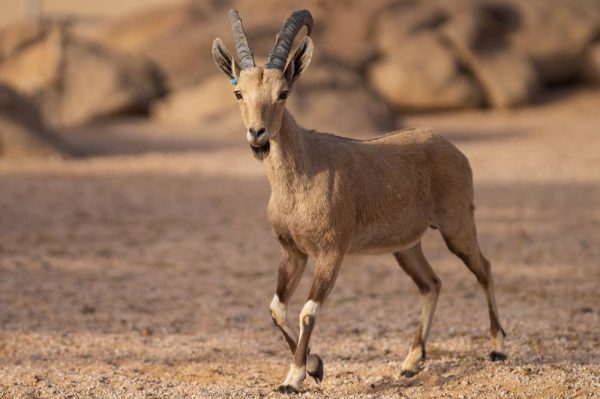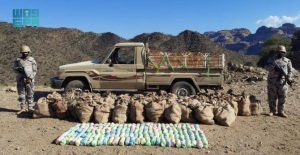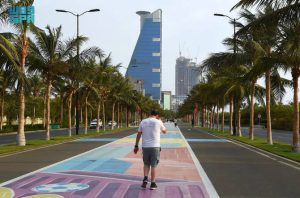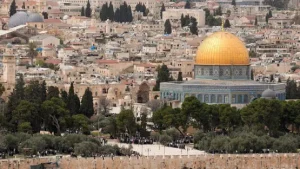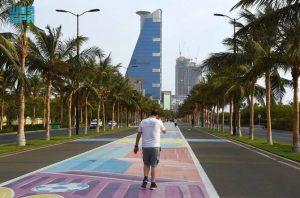Saudi Arabia Marks First Successful Breeding of Nubian Ibex at Royal Reserve
RIYADH – Saudi Arabia’s rewilding and conservation efforts reached a historic milestone recently with the birth of two Nubian ibexes at the Prince Mohammed bin Salman Royal Reserve, the first successful breeding of the species at the location.
The Nubian ibex, which is “vulnerable” according to the International Union for Conservation of Nature (IUCN), has less than 5,000 mature animals remaining in the world. The births are a major milestone in the ambitious Saudi rewilding project that seeks to return 23 native species to the wild.
Andrew Zaloumis, reserve CEO, stressed that the breeding success was achieved through “scientific best practices, ongoing veterinary care, specialist ranger management, and carefully managed habitats.”
The reserve’s landscape dominated by rocky cliffs, sandstone mountains such as Jabal Qaraqir, and the water-abundant Wadi Al-Disah Valley is the perfect habitat for animals such as the Nubian ibex, which is specially suited to mountainous and desert environments. There is evidence of ancient rock art in the area that also illustrates the ibex, which speaks volumes about its historical occurrence.
The reserve has bred four of the principal species to success now, namely the Nubian ibex, Arabian oryx, sand gazelle, and mountain gazelle. A total of 11 out of the 23 target species have already been reintroduced into the wild.
Spanning more than 24,500 sq. km, the reserve links significant ecological projects like NEOM, Red Sea Global, and AlUla. The reserve encompasses 15 varied ecosystems and harbors over half of the Kingdom’s wildlife species all in 1% of the Kingdom’s landmass.
The rewilding project forms part of an overall conservation strategy worked out in collaboration with the National Center for Wildlife to rehabilitate and conserve Saudi Arabia’s natural biodiversity for generations to come.

